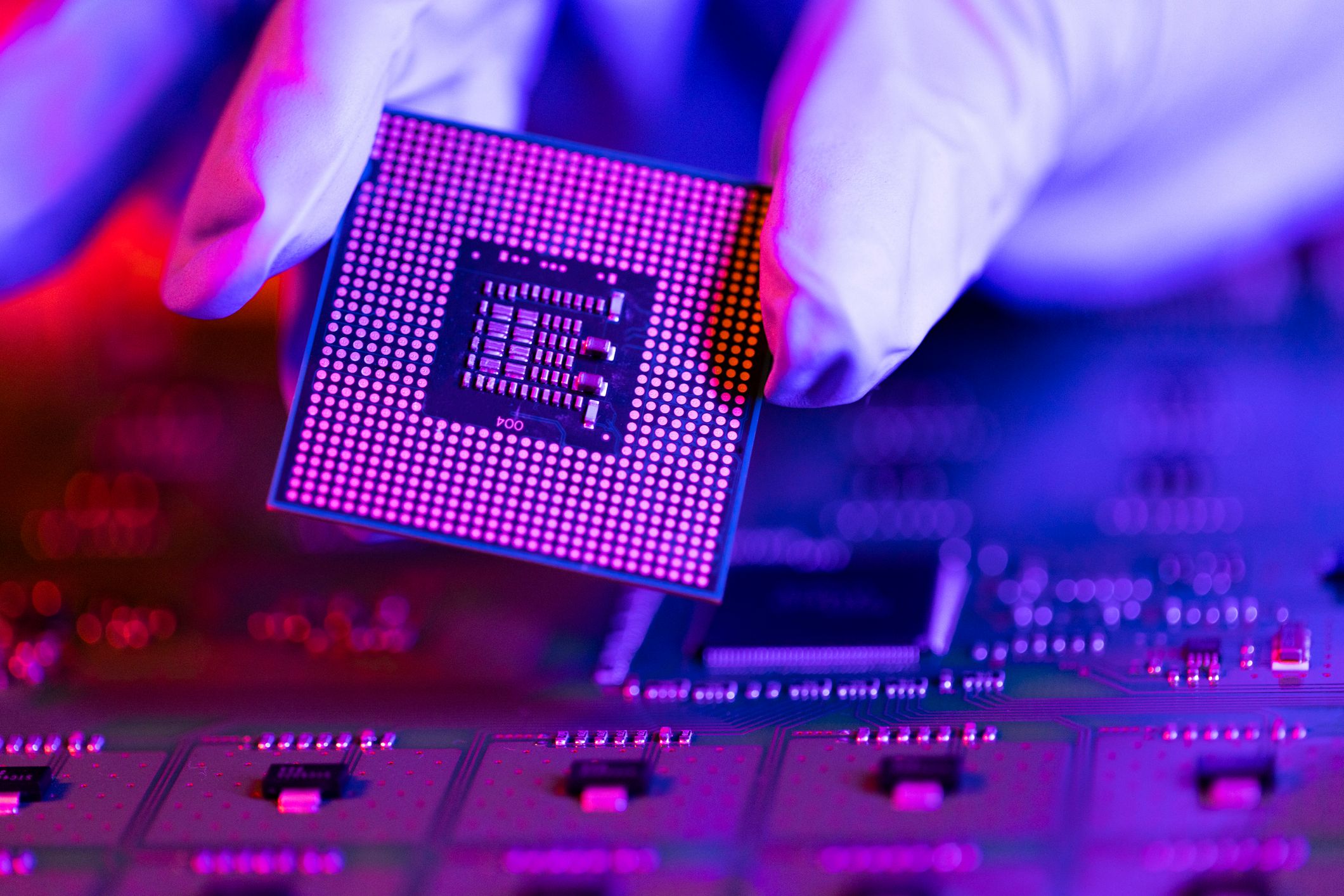Qualcomm (QCOM +0.02%), the biggest mobile chipmaker in the world, will soon also become the world's largest automotive chipmaker after it closes its $47 billion acquisition of NXP Semiconductors (NXPI 1.06%). NXP only became the world's top automotive chipmaker last year, after it bought its rival Freescale for nearly $12 billion.

Image source: Getty Images.
This game-changing acquisition will send waves across the chipmaking industry, and investors should be aware of how the move could affect smaller automotive chipmakers, such as NVIDIA (NVDA +1.02%), Intel (INTC +0.11%), and Mobileye (MBLY +0.00%).
NVIDIA
One of NVIDIA's smartest moves in recent years was pivoting its Tegra mobile systems on a chip (SOCs) away from smartphones and tablets, where they were marginalized by Qualcomm's Snapdragon SoCs, toward connected cars. High-end automakers installed Tegra chips into their infotainment and navigation systems, and NVIDIA's automotive chips became one of its key growth drivers.
Last quarter, NVIDIA's automotive revenue rose 68% annually to $119 million and accounted for 8% of its top line. NVIDIA is trying to expand that business further with Drive PX, a turnkey platform for autonomous vehicles. Major automakers such as BMW, Daimler, and Ford are already testing out Drive PX, and the platform could make it much easier for automakers to produce driverless vehicles.

Image source: NVIDIA.
But here's the problem -- when NXP acquired Freescale last year, it inherited BlueBox, another turnkey autonomous driving platform which competes against Drive PX. NXP already supplies the chips that control driver assistance systems to eight of the 10 leading automakers in the world, which provides it with a natural foothold in driverless vehicles.
Earlier this year, Qualcomm introduced its Snapdragon Automotive processors, which modify its mobile SoCs for vehicles to counter NVIDIA's Tegra. Once Qualcomm closes the deal and bundles NXP's automotive chips, Bluebox, and Snapdragon Automotive together, NVIDIA's automotive business could struggle to keep up.
Intel
Intel recently partnered with advanced driver assistance systems (ADAS) maker Mobileye and BMW to develop a fully autonomous vehicle platform by 2021. That move expands on Intel's other moves to expand into driverless cars, including the acquisitions of Internet-of-Things functional safety company Yogitech and computer vision companies Itseez and Movidius.
Intel's chips already power infotainment and navigation systems in select Hyundai, BMW, Kia, and Infiniti vehicles, but its presence is small compared with NXP and NVIDIA. Intel already fell behind a major technological curve when it lost the mobile market to ARM chipmakers such as Qualcomm and MediaTek.
Since connected cars are often considered the next big computing platform, Intel must establish a foothold in this market to diversify away from its slower-growth PC and data center businesses. Qualcomm's purchase of NXP could make that very tough, since the combined company could bundle together a much wider variety of automotive chips than Intel. That competition could throttle the growth of Intel's fledgling IoT business, which grew its sales by 19% annually last quarter.
Mobileye
Mobileye established a first-mover's advantage in the ADAS market by linking older cameras and radars to braking systems. These solutions, which 90% of the world's major automakers use, are more cost-efficient ways to improve vehicle safety without the installation of pricey LIDAR systems or onboard computers. To address the needs of autonomous vehicles, Mobileye -- along with its longtime partner STMicroelectronics -- developed the EyeQ line of computer vision chips.
Mobileye has posted double-digit sales growth in every quarter since its IPO in 2014. However, there are rising concerns that Mobileye will struggle to fend off bigger rivals such as NVIDIA and Qualcomm/NXP. Tesla Motors recently discontinued its partnership with Mobileye over concerns about its EyeQ-powered Autopilot system, leaving the door wide open for competitors to swoop in. Its aforementioned partnership with Intel should provide Mobileye with some financial support, but it's unclear if it can remain relevant against NVIDIA and NXP's newer computer vision plays.
Should you fear the 800-pound gorilla?
Qualcomm has now become the 800-pound gorilla of automotive chips, but investors shouldn't assume that the chipmaker can simply boot NVIDIA, Intel, and Mobileye out of the market. NVIDIA and Mobileye both have deep roots in the industry, and Intel can make additional acquisitions to strengthen its foothold. Nonetheless, investors should keep a close eye on Qualcomm's alarming advance into the growing market for connected cars.










